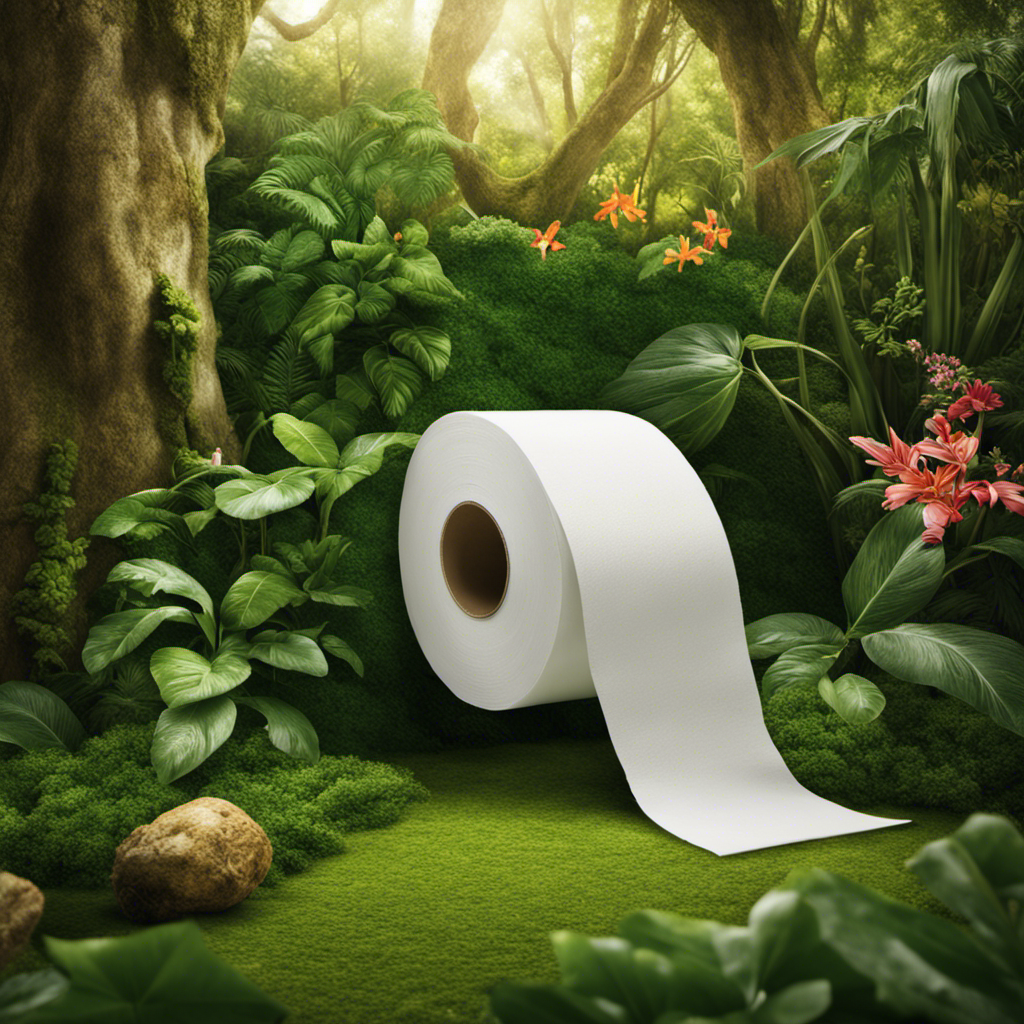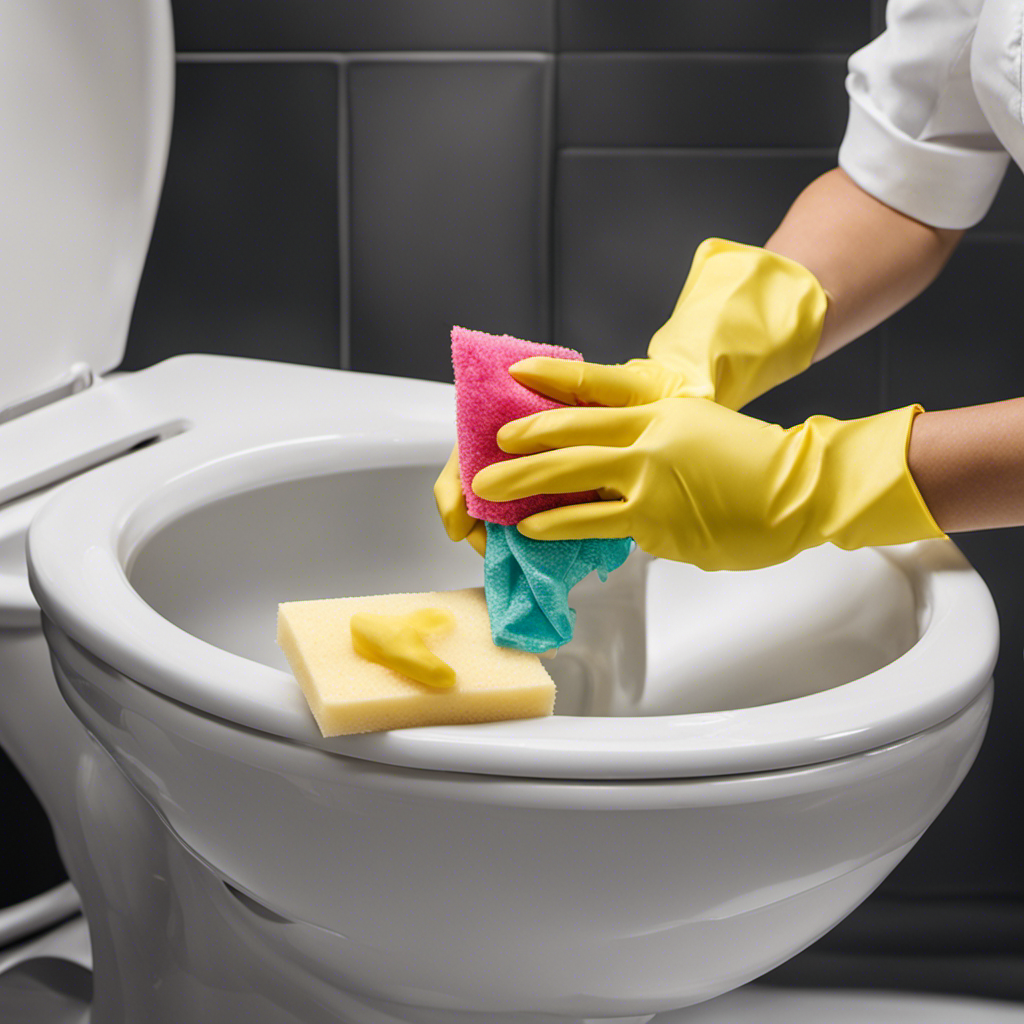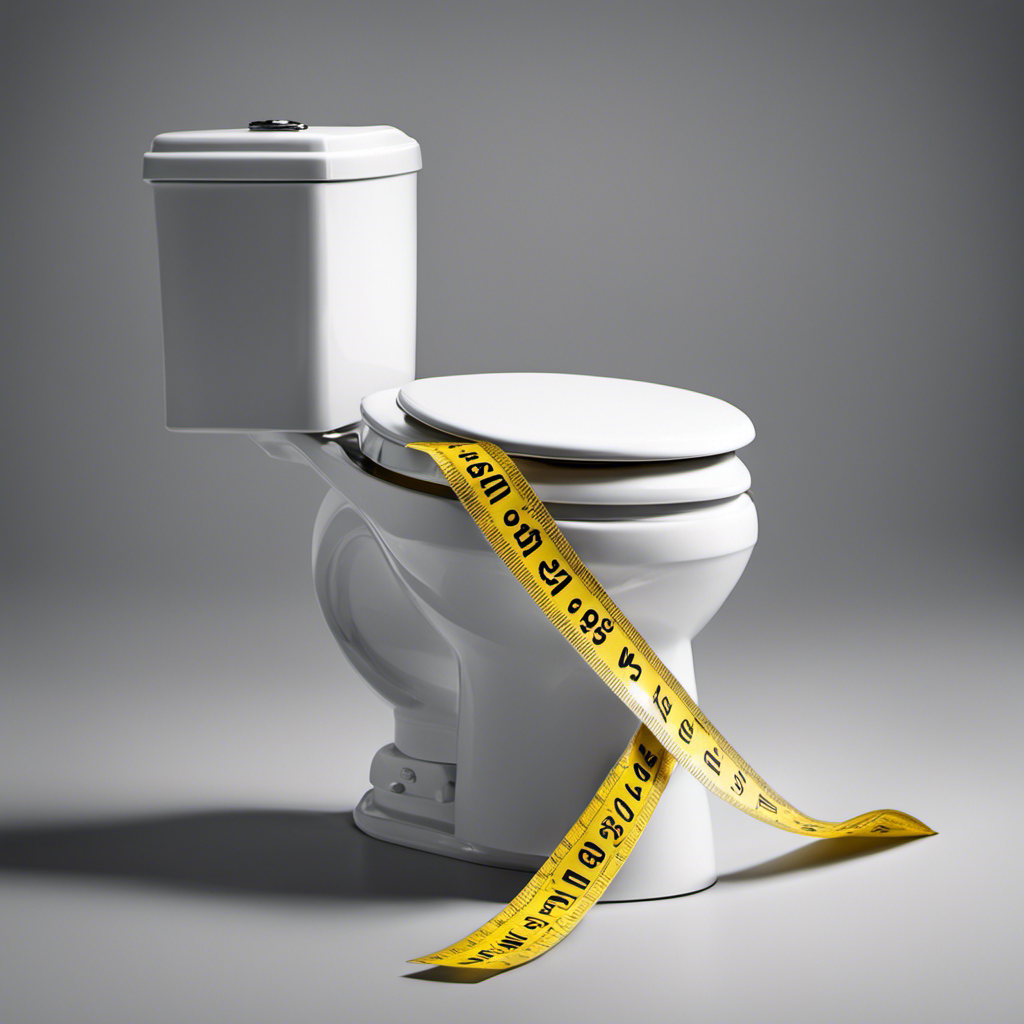I’ve always wondered how long it takes for toilet paper to decompose. It’s something we use every day, but rarely think about its environmental impact.
In this article, we’ll explore the factors that affect toilet paper decomposition and the average time it takes for it to break down. We’ll also discuss alternative options and provide tips for using toilet paper in an eco-friendly way.
So, let’s dive in and uncover the truth about toilet paper decomposition.
Key Takeaways
- Toilet paper takes a significant amount of time to decompose, generally about 2-4 weeks.
- The manufacturing process of toilet paper involves cutting down trees, contributing to deforestation and the reduction of the Earth’s ability to absorb carbon dioxide.
- The bleaching process used to make toilet paper white can release harmful chemicals into the environment.
- Using bidets or reusable cloth wipes as alternatives to conventional toilet paper is a more sustainable and eco-friendly option that reduces the demand for toilet paper production.
Environmental Impact of Toilet Paper
Toilet paper takes a significant amount of time to decompose, which can have a negative environmental impact. The manufacturing process of toilet paper involves cutting down trees and grinding them into pulp. This deforestation impact contributes to the destruction of natural habitats and reduces the Earth’s ability to absorb carbon dioxide.
Additionally, the bleaching process used to make the paper white can release harmful chemicals into the environment. These factors combined make the production of toilet paper an unsustainable practice that harms our planet.
However, there are other factors affecting toilet paper decomposition, such as the thickness and quality of the paper, as well as the conditions in which it is disposed of.
Factors Affecting Toilet Paper Decomposition
When you’re considering factors that affect how quickly toilet paper breaks down, you’ll want to think about things like moisture levels and the presence of microorganisms. These factors can significantly impact the decomposition process and have implications for wastewater treatment. Here are some key considerations:
- Moisture levels: Higher moisture levels can accelerate the breakdown of toilet paper, while drier conditions can slow it down.
- Microorganisms: Certain bacteria and fungi play a crucial role in breaking down toilet paper. The presence of these microorganisms can speed up decomposition.
- Fiber composition: Toilet paper made from recycled fibers tends to break down faster compared to those made from virgin fibers.
- Manufacturing process: The manufacturing process can affect the strength and durability of toilet paper, impacting its decomposition rate.
- Chemical additives: Some toilet paper brands may contain chemical additives that can affect decomposition and potentially impact wastewater treatment processes.
Understanding these factors can help us make informed choices about toilet paper usage and its impact on the environment and wastewater treatment systems.
Average Decomposition Time for Toilet Paper
If you’re curious about how quickly it breaks down, you’ll be interested to know the average decomposition time for toilet paper.
The toilet paper decomposition process is influenced by various factors, including microbial activity.
On average, toilet paper takes about 2-4 weeks to decompose completely. However, this timeframe can vary depending on several factors such as temperature, humidity, and the presence of oxygen.
In favorable conditions, microbial activity plays a crucial role in breaking down the cellulose fibers present in toilet paper. These microorganisms, such as bacteria and fungi, secrete enzymes that break down the cellulose molecules into simpler compounds.
Over time, these compounds are further broken down by other microorganisms, eventually returning to the environment as organic matter.
It’s important to note that using biodegradable toilet paper can help speed up the decomposition process and reduce environmental impact.
Alternatives to Conventional Toilet Paper
Using alternatives to conventional toilet paper, such as bidets or reusable cloth wipes, can be a more sustainable and eco-friendly option. Here are some benefits of using bidets:
- Reduced toilet paper usage: Bidets use water to clean, so you can significantly decrease your toilet paper consumption.
- Improved hygiene: Bidets provide a more thorough cleaning than toilet paper alone, reducing the risk of infection or irritation.
- Cost-effective: While bidets have an upfront cost, they save money in the long run by reducing the need for constant toilet paper purchases.
- Environmentally friendly: By using bidets, you can help reduce the demand for toilet paper production, which contributes to deforestation and pollution.
- Comfort and convenience: Bidets provide a gentle and refreshing cleaning experience, promoting comfort and cleanliness.
Overall, opting for sustainable toilet paper options like bidets not only benefits the environment but also offers improved hygiene and cost savings.
Tips for Eco-Friendly Toilet Paper Usage
To be more eco-friendly with your toilet paper usage, consider purchasing brands that are made from recycled materials. These brands are not only better for the environment, but they also help reduce the amount of waste that goes to landfills.
Eco-friendly toilet paper brands are typically made from post-consumer recycled paper, which means they are made from materials that have already been used and recycled. By choosing these brands, you can contribute to the circular economy and help conserve natural resources.
Additionally, you can further reduce toilet paper waste by using less toilet paper per use. Opt for single-ply toilet paper or consider using bidets or toilet paper alternatives like reusable cloth wipes.
Small changes in your toilet paper usage can make a big difference in reducing waste and protecting the environment.
Frequently Asked Questions
Can I Compost Toilet Paper?
Yes, you can compost toilet paper. It is a great way to reduce waste and nourish your garden. However, if you are concerned about decomposition time, there are alternative options available.
Is Recycled Toilet Paper Better for the Environment?
Using recycled toilet paper is a cost-effective and sustainable option for households. It reduces deforestation, saves water and energy in the production process, and helps minimize waste. Plus, it’s just as effective as regular toilet paper.
Can Toilet Paper Be Harmful to Septic Systems?
Toilet paper can be harmful to septic systems if not properly managed. Excessive use can cause clogs and backups, leading to costly repairs. It is important to use septic-safe toilet paper and avoid flushing items that do not decompose easily.
How Does Toilet Paper Production Contribute to Deforestation?
Toilet paper production contributes to deforestation due to the manufacturing process. The environmental impact of toilet paper production comes from the sourcing of wood pulp, which often involves cutting down trees from forests.
Are There Any Health Risks Associated With Using Eco-Friendly Toilet Paper Alternatives?
There are no known health risks associated with using eco-friendly toilet paper alternatives. These alternatives offer benefits such as being made from sustainable materials and reducing deforestation.
Conclusion
In conclusion, the decomposition time of toilet paper may not be a pressing concern for most people. However, it’s essential to acknowledge the environmental impact of this seemingly innocent bathroom essential.
While factors like moisture, temperature, and chemical content can influence decomposition time, the average timeframe is around 2-4 weeks. But fear not! There are alternatives like recycled toilet paper and bidets that can help reduce our reliance on this decomposing menace.
So, let’s wipe away our ignorance and make eco-friendly choices for a brighter, and less toilet-paper-filled, future.










